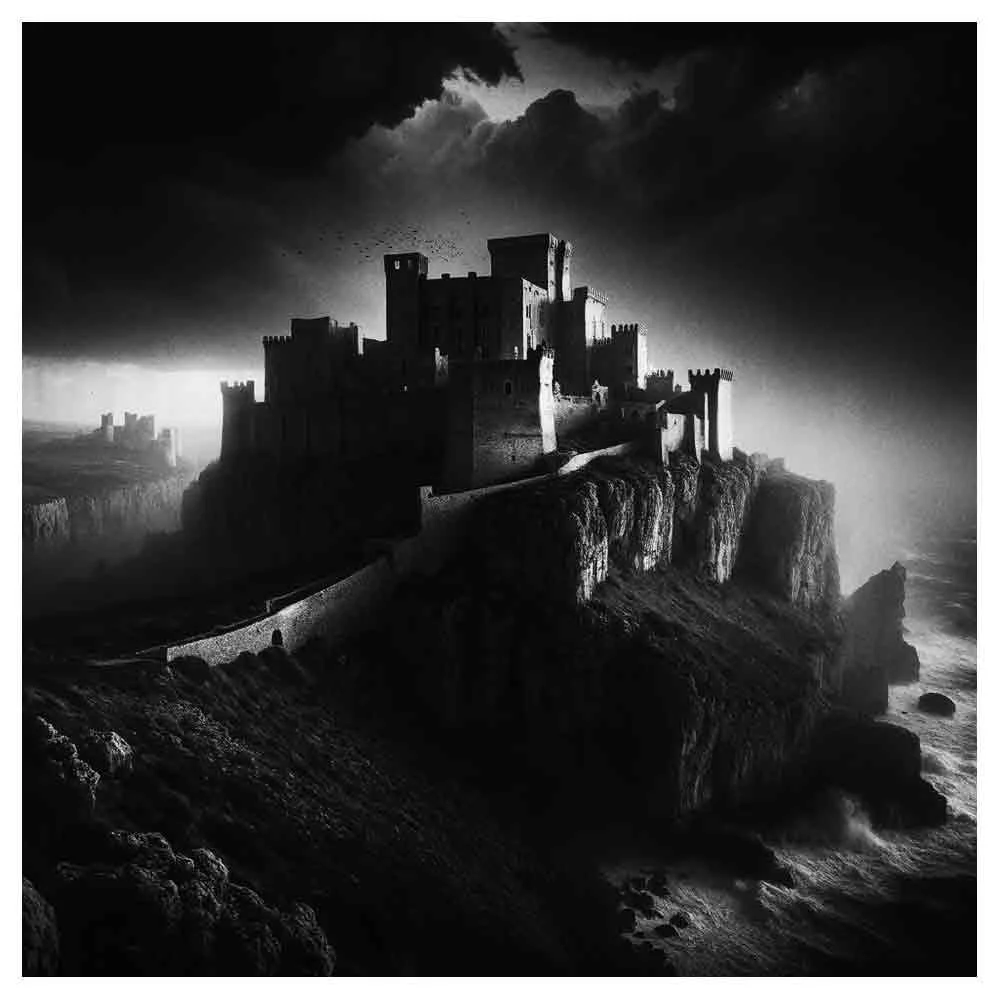101 Character Death Ideas That Will Transform Your Writing Forever
Are you tired of the same old clichés when killing off characters? Are your readers yawning at predictable deaths that they saw coming a mile away?
Prepare to journey into the uncharted realms of creativity with our 101 character death ideas.
I've covered everything from beloved characters' tragic demise to an infamous villain's shocking end! Dive into this treasure trove of inspiration, and never write a bland death scene again.
Your characters may die, but your audience's interest won't!
Character death ideas
1. Aged Gracefully: The main character lives a fulfilling life until they die of old age.
2. Mid-battle: The character dies amid a fight, a fitting end for a seasoned warrior.
3. Poetic Justice: The enemy of the character causes their death, a tragic end fitting for the story's narrative.
4. Sacrificial Hero: The character sacrifices their life to save others.
5. Betrayal: A close friend or family member unexpectedly kills the character.
6. Lost in the Wilderness: Two characters venture into unknown territory, and one doesn't return.
7. Heartbreak: A beloved character dies of a broken heart after losing a loved one.
8. A Fatal Mistake: A well-meaning character makes a tragic error that leads to their death.
9. Caught in a Crossfire: A character is mistakenly killed in a heated battle or conflict.
10. The Deadly Disease: The character succumbs to a prolonged disease they've been battling.
11. A Matter of Time: The character has a terminal illness that profoundly affects their life and death.
12. The Writer's Block: The character is killed by the author in a brilliant piece of writing.
13. Life's Irony: A character who was a swimming champion dies due to drowning.
14. Unfortunate Accident: The character dies in an unexpected accident that has nothing to do with the main plot.
15. The Wrong Place at the Wrong Time: A character is killed just because they were at the wrong place at the wrong time.
16. Enemy's Revenge: The character is killed as part of an enemy's long-planned revenge.
17. Caught in the Act: The character dies while doing something they love or are passionate about.
18. The Sacrifice: The character sacrifices their life in a pivotal moment.
19. Accidental Hero: The character dies unexpectedly while performing a heroic act.
20. Mysterious Circumstances: The character dies under unexplained circumstances throughout the story.
21. Cursed: The character dies due to a curse placed upon them.
22. The Ultimate Price: The character pays the ultimate price for their actions or mistakes.
23. Stung: The character is stung by a deadly insect or bitten by a venomous snake.
24. The Peaceful Death: The character dies peacefully in their sleep.
25. Last Stand: The character is killed while making a courageous last stand.
26. Choked: The character chokes on something and dies.
27. Be Careful What You Wish For: The character's wish is granted, but it leads to their demise.
28. Petrification: The character is turned to stone by a magical creature or curse.
29. Self-fulfilling Prophecy: The character dies in a way that was foretold by a prophecy.
30. Final Goodbye: The character bids a touching farewell before passing away.
31. Disappearance: The character disappears without a trace, leaving others to assume they're dead.
32. Buried Alive: The character is mistakenly buried alive.
33. Test of Faith: The character dies due to their unwavering faith or belief.
34. Unexpected Hero: The character dies while saving someone they hardly know.
35. Failed Experiment: The character dies due to a failed scientific experiment.
36. Martyrdom: The character is killed for their beliefs or principles.
37. Lost in Space: The character dies during a space mission, lost to the cosmos.
38. The Ghost: The character has been dead all along, and they're a ghost.
39. Memory Loss: The character dies after losing all their memories.
40. Freak Accident: The character is killed in an unexpected and freakish accident.
41. Epic Duel: The character is killed in an epic duel or fight.
42. In Another's Body: The character dies while their consciousness is in another's body.
43. Poisoned: The character is killed by a slow-acting poison.
44. Tragic Love: The character dies due to a tragic love story.
45. Doppelgänger: The character is killed by their doppelgänger.
46. Hunger Games Style: The character is killed in a deadly game or competition.
47. Haunted: The character is scared to death by a supernatural entity.
48. Eternal Sleep: The character is put under a sleeping spell and never wakes up.
49. Sucked into a Book: The character is sucked into a book or painting and can't escape.
50. A Deal with the Devil: The character deals with the devil, leading to their demise.
51. Fate's Choice: The character dies as a result of a game of chance or fate.
52. Struck by Lightning: The character is killed by a lightning strike.
53. Apocalyptic Event: The character dies during an apocalyptic event.
54. Banished: The character is banished to another dimension or world.
55. Misunderstanding: The character is killed due to a tragic misunderstanding.
56. Deadly Performance: The character dies during a play or performance.
57. Magic Gone Wrong: The character is killed by a magic spell that goes wrong.
58. Time Travel Paradox: The character dies due to a time-travel paradox.
59. Drowning in Quicksand: The character drowns in quicksand or a similar substance.
60. Swallowed by a Whale: Just like Jonah, the character is swallowed by a whale or a large sea creature.
61. Eaten by Zombies: The character is killed by a horde of zombies.
62. Lost at Sea: The character is lost at sea during a storm or shipwreck.
63. Deadly Silence: The character dies in a place where making a sound means certain death.
64. Trapped in a Dream: The character is trapped in a dream or nightmare and can't wake up.
65. Alien Abduction: The character is abducted by aliens and never seen again.
66. Groundhog Day: The character dies multiple times, reliving the same day over and over.
67. Transformation: The character is transformed into a non-human entity and can't return to its human form.
68. Haunted House: The character is killed by a spirit or entity in a haunted house.
69. Blind Love: The character dies because of their blind love for someone.
70. The One That Got Away: The character is killed by an escaped criminal or enemy.
71. Trapped in Time: The character is trapped in a different time period and can't return.
72. Deadly Game: The character is killed during a deadly game or hunt.
73. Lifelong Secret: The character dies with a lifelong secret, never revealed to others.
74. Forgotten: The character is forgotten by everyone and fades away.
75. Virtual Reality: The character dies in a virtual reality game and can't log out.
76. Invisible Threat: The character is killed by an invisible or unseen threat.
77. Taken by the Wind: The character is swept away by a strong wind or storm.
78. Crushed by a Giant: The character is crushed by a giant or massive creature.
79. Sacrificed to the Gods: The character is sacrificed to appease angry gods.
80. Fading Away: The character fades away slowly, forgotten by all.
81. Fateful Decision: The character's death is the result of a single, fateful decision.
82. Killed by a Robot: The character is killed by a rogue AI or robot.
83. Vengeful Spirit: The character is killed by a vengeful spirit or ghost.
84. Killed by Their Creation: The character is killed by something they created, like a monster or invention.
85. Death by Words: The character is killed by words or a curse.
86. Killed by Laughter: The character dies from laughing too hard or at the wrong moment.
87. Taken by the Earth: The character is swallowed by the Earth during an earthquake or sinkhole.
88. Killed by Beauty: The character is killed by something beautiful, like a siren or enchanting creature.
89. Death in a Parallel Universe: The character dies in a parallel universe or alternate reality.
90. Killed by a Meteor: The character is killed by a meteor or other celestial event.
91. Killed by Their Past: The character's past catches up with them, leading to their death.
92. Death by Music: The character is killed by a music or song.
93. Froze to Death: The character freezes to death in a cold or icy environment.
94. Death by Hypnosis: The character is hypnotized and then killed.
95. Betrayed by Technology: The character is killed by technology they trust.
96. The Last Dance: The character dies during their last dance or performance.
97. Eclipsed: The character is eclipsed by something greater and fades away.
98. Death by Greed: The character's greed or ambition leads to their demise.
99. Death by Ignorance: The character's ignorance or naivety leads to their death.
100. A New Beginning: The character's death marks a new beginning for others.
101. Unwritten End: The character's death is left ambiguous, leaving readers to decide their fate.
Conclusion
The death of a character isn't just an event; it's a pivotal moment that can either make or break your story.
With this list of ideas, you'll avoid clichés and create memorable scenes that resonate with your readers. Don't let your characters' deaths be in vain; make each one a masterstroke that propels your story to unimaginable heights.
Now go forth and write, for even in death, your characters have much to tell!
Frequently Asked Questions About character death ideas
What are character death ideas, and why are they important in storytelling?
Character death ideas refer to the creative concepts and themes that can be used to depict the death of a character within a story.
These ideas heighten the emotional impact, drive the plot forward, or signify a turning point in a character's arc. They can add depth, gravity, and realism to a story.
How can I write effective death scenes without overwhelming the reader?
Writing death scenes requires a delicate balance. Focus on other characters' emotional reactions, the death's symbolism, or even the physical environment.
Think about what death means in the broader context of the story, and don't dwell overly on gruesome details unless it serves the plot or character development.
Can a main character's death make sense in a story?
Absolutely! The death of a main character can be a powerful turning point in a story, especially if it serves the character arc or pushes other characters into new territories.
It should make sense within the plot, reflecting real life or the internal logic of the fictional world.
What are some great examples of fulfilling life leading to death by old age?
A character's fulfilling life leading to death by old age can be a profound narrative tool. Think of a wise elder who has imparted wisdom to younger characters or a character who has seen and experienced the world.
The character Gandalf from "The Lord of the Rings" or Albus Dumbledore from "Harry Potter" might serve as fictional examples.
How can I create a death scene for a beloved character that feels genuine?
A beloved character's death can be heartbreaking for readers. Focus on the emotional connection, build up to the moment, and ensure it aligns with the character's values or role within the story.
Consider how other characters react and what death means for the larger plot.
Is it acceptable to kill a character off-screen or without a detailed description?
Killing a character "off-screen" can be a powerful choice if handled well. It can leave readers in shock, disbelief, or even denial.
The impact can be conveyed through other characters' reactions, subsequent events, or the void left behind.
How can I handle sensitive topics like suicide or disease in character death?
Approach sensitive topics with care and respect, considering your readers' feelings. Research, empathy, and a focus on the emotional truth can guide your writing.
If the subject is integral to the story, treat it with the gravity it deserves, and don't use it merely for shock value.
How can the death of a character serve as a plot device?
Character deaths can serve various purposes in a plot. They can be a catalyst for action, a turning point in another character's development, or a climax in a conflict.
Think of Ned Stark's death in "Game of Thrones" – a critical turning point propels the story forward.
What are the common pitfalls to avoid when writing death scenes?
Avoid clichés, over-dramatization, or inconsistent characterization. Make sure the death fits within the plot and doesn't feel forced.
Being overly graphic without purpose or killing a character merely for shock value can also be pitfalls. It should resonate with the story, characters, and themes.
Can I bring a character back to life after they've died?
In fiction, anything is possible! Characters can be brought back through supernatural means, science fiction elements, or even dream sequences.
However, it should be handled carefully to ensure it fits the story's tone and doesn't undermine previously established stakes or emotions.
How can I make the death of a minor character or even an enemy significant?
Even the death of a minor character or an enemy can have meaning. Think about what they represent in the story, how their death impacts the main characters, or what it reveals about the world.
It might also mark a significant change in a main character's development or the story's direction.
How can I use symbolism or metaphor in writing death scenes?
Symbolism or metaphor can add depth to death scenes. Think of the falling leaves to represent the end of life, a broken object to symbolize loss, or weather changes to reflect the mood.
Creatively linking the physical scene with emotions, themes, or character traits can enrich the writing.
Can I write a fun or humorous death scene?
While death is often a serious subject, it can be approached with humor or whimsy, especially in certain genres or styles.
Whether it's a cat knocking over a fatal potion or a character slipping on a banana peel in a comedy, the tone, and context should guide the writing.






























